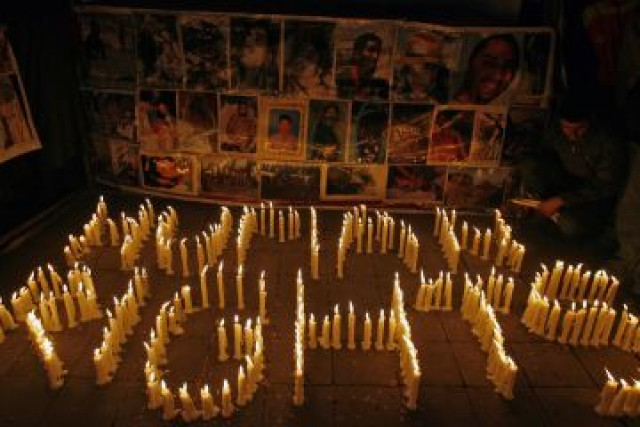Advice to president: ‘Don’t ratify bill until probe powers are enlarged’
Rights commission be allowed to investigate abuses by military, intelligence agencies, says Human Rights Watch.

Human Rights Watch on Thursday urged President Asif Ali Zardari to not sign a bill creating a national human rights commission until it is revised to authorise investigations of the military and the intelligence agencies for rights abuses.
“The National Human Rights Commission if given teeth can play a critical role in improving Pakistan’s dire human rights situation,” said Brad Adams, Asia director at Human Rights Watch. “President Zardari should tell parliament he will only sign the bill when it gives the commission authority over abuses by the military and intelligence agencies.”
Even though the National Human Rights Commission Act was passed by the National Assembly on May 4, 2012, it still requires presidential consent to go into effect.
At the same time, the rights group said that the bill creating the National Human Rights Commission “contained many positive elements,” as the proposed commission “would be an independent body, with members appointed by a cross-party parliamentary committee”. However, it expressed concern that the current bill would prevent the commission from addressing or investigating rights violations by members of the armed forces and intelligence agencies.
It went on to add that in instances of allegations against the armed forces, the commission would only be mandated to seek a report from the federal government. After it received the report, it would only be able to recommend further action to the government. It would have no powers of direct investigation into these cases.
The commission also would be virtually powerless to investigate any allegation of abuse related to an intelligence agency, Human Rights Watch said. Section 15 of the proposed law states that the “functions of the commission do not include inquiring into the act or practice of intelligence agencies.” Should a complaint be made to the commission alleging an agency act or practice “inconsistent with or contrary to any human right, the commission shall refer the complaint to the competent authority concerned,” the bill says.
“Pakistan’s military and its intelligence agencies have a long and well-documented history of serious and systematic abuses,” Adams said. “A primary reason to create a national human rights commission should be to address longstanding impunity for the army and intelligence services.”
Furthermore, the organisation pointed out that the bill is contrary to the Principles relating to the Status of National Institutions, known as the Paris Principles. The United Nations General Assembly adopted the Paris Principles in 1993 to create international standards for the operation of national human rights commissions. The Paris Principles set out that a national human rights commission must be free to consider any questions falling within its competence, whether submitted by the government or taken up by the commission without referral from a governmental authority, on the proposal of its members or of any petitioner.
“A strong and independent National Human Rights Commission can be a key institution in aiding Pakistan’s transition to a truly rights-respecting democracy,” Adams said. “But a commission that cannot take on cases involving the army and intelligence agencies would perpetuate a cruel joke on Pakistanis whose rights have been violated.”
Published in The Express Tribune, May 18th, 2012.



















COMMENTS
Comments are moderated and generally will be posted if they are on-topic and not abusive.
For more information, please see our Comments FAQ